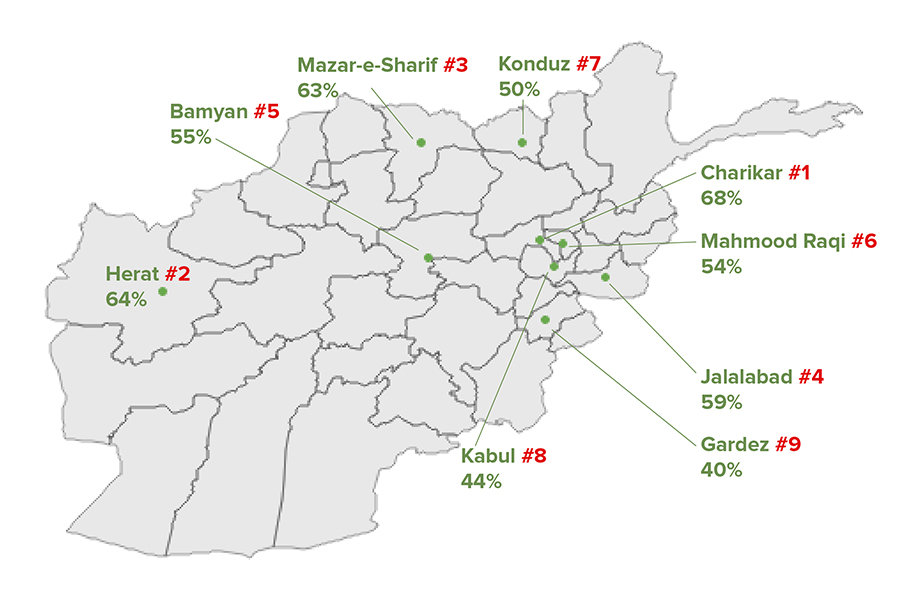DEVELOPMENTS
Afghan Cities Assisted by USAID Project Achieve Highest Ratings in Citizen Survey
Jan 30, 2018
In a citizen assessment of government services in nine Afghan municipalities, the four that ranked the highest—Chaharikar, Hirat, Mazar-e-Sharif, and Jalalabad—are all partners with a U.S. Agency for International Development (USAID) project working to improve the capacity of Afghan municipal officials to meet citizen priorities and service delivery needs.

The project, Strong Hubs for Afghan Hope and Resilience (SHAHAR), offers targeted support to municipal governments—as well as to the Deputy Ministry of Municipalities and Municipal Advisory Boards—to improve municipal financial management, urban service delivery, and citizen consultation.
To the extent that such improved governance confers legitimacy on government institutions and weakens the hand of anti-government elements, SHAHAR’s success offers an encouraging example of how technical assistance can be an effective tool in countering violent extremism in fragile environments.
Conducted by the independent Integrity Watch Afghanistan (IWA), the survey used the “citizen report card” approach, seeking to prompt reform by imitating the type of consumer pressure that drives private companies to do better.
The fifth SHAHAR partner municipality included in the study is Gardez, which was without SHAHAR embedded advisors from mid-November 2016 until June 2017, due to a funding reduction that was subsequently partially restored. Consequently, the citizen service center, a number of community outreach activities, and public awareness campaigns were not completed in Gardez until after IWA conducted its survey in April 2017. Additionally, the increasing insecurity in and around Gardez in 2017 also caused several project activities to be cancelled. These issues may have contributed to its lower score. In compiling its scorecards, IWA conducted a total of 4,444 surveys, spread evenly across the nine municipalities. IWA concluded that, overall, “Afghan municipalities must do more to improve the quality of services delivered to citizens, the level of overall governance, and the extent to which they communicate effectively with citizens.”
The cities that scored relatively well are those where SHAHAR has led targeted activities around improving the services offered by local governments. These activities include establishing Citizen Service Centers (CSCs) equipped with systems that track business licensing, parcel registration, tax billing, and collection, and holding community meetings to spread awareness around municipal services such as waste collection. To reduce corruption, SHAHAR introduced a practice whereby citizens pay their taxes or fees at a bank or the CSC—instead of paying a government employee directly—and receive a receipt.
Since SHAHAR started in 2014:
- Partner communities have raised legitimate municipal revenues by as much as 38 percent year over year.
- Its partner municipalities improved their governance scores by an average of 239 percent between July 2015 and August 2016 in the areas of revenue and finances, planning, service delivery, administrative reform, and community outreach.
- Its partner municipalities have successfully bid out and completed 14 small infrastructure projects (such as new bus terminals, markets, renovated parks and sports fields, and improved drainage).
To learn more about what SHAHAR is doing to improve local governance and service delivery, watch this video: